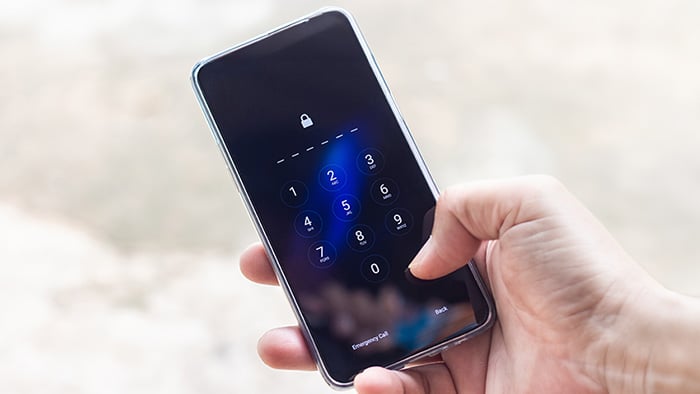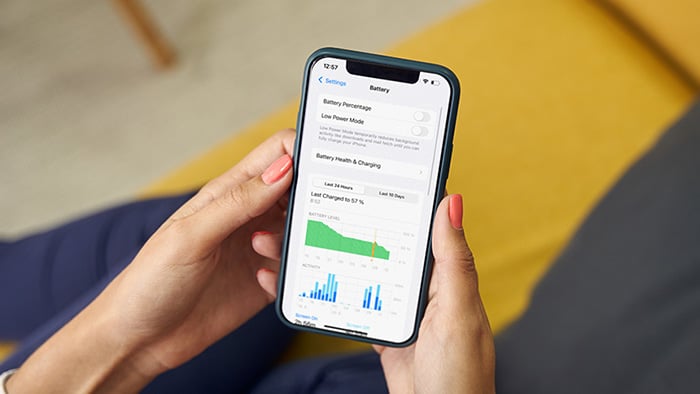What is cryptography?
Cryptography is the use of mathematical concepts and rules to secure information and communications. Derived from the Greek word kryptos, which means hidden, the definition of cryptography refers to converting intelligible text into unintelligible text, and vice versa. Cryptographic techniques allow only a message’s sender and intended recipient to read the decoded contents.
Types of cryptography
There are three cryptography types, which are distinguished by the types of cryptographic algorithms they use to scramble data. Most types of cryptography use algorithms called keys that scramble and unscramble, or code and decode, data.
Here are the different types of cryptography:
-
Secret Key Cryptography: A secret key is used to both encrypt and decrypt the data. The sender includes the secret key in the coded message sent to the intended recipient. If the message is intercepted, the included key can decode its contents.
-
Public Key Cryptography: The sender uses a public key to encrypt the message, and the receiver uses a private key to decrypt it. If the message is intercepted, the contents can’t be deciphered without the private key.
-
Hash Functions: Hash functions don’t rely on keys. Instead, they scramble data of varying size into values of uniform length. With hash functions, both a one-word message and a 1000-page novel create a fixed-sized output of encoded text (called a hash value), making it nearly impossible to determine the original content. Commonly using the MD5 hashing algorithm, hashing is often used for authentication purposes.
How does cryptography work?
Cryptography works by taking plaintext (or cleartext) and scrambling it into ciphertext, so that the encoded output can be understood only by the intended recipient. As ciphertext, the information should be unreadable to all except the intended recipient.
In cybersecurity, encryption is most often used to scramble plaintext into ciphertext — while decryption reverses the process. The best encryption software uses complicated cryptographic algorithms that are incredibly difficult to crack.
 In asymmetric encryption, a public key is used to encrypt a message and a private key is used to decrypt it.
In asymmetric encryption, a public key is used to encrypt a message and a private key is used to decrypt it.
The exact technique used to scramble plaintext into ciphertext defines how cryptography works. Symmetric encryption, asymmetric encryption, blockchain, and digital signatures are some prominent encryption techniques. Hashing, another cryptographic process, is not technically encryption, since it doesn’t use keys.
History of cryptography
Codes and ciphers have been used to send and receive secret messages for thousands of years. Coded hieroglyphs and cuneiform inscriptions from ancient Egypt and Babylon are the earliest surviving examples of “classical” cryptography that used substitution methods to translate plaintext into ciphertext, and back again.
These relatively simple, manual cryptographic techniques remained fundamentally unchanged for hundreds of years until the early 20th century ushered in a new era of cryptography, with complex electromechanical machines enabling more sophisticated and efficient coding and decoding processes.
Although the advent of digital computing technology accelerated this trend, cryptography has taken another quantum leap forward in recent decades with the invention of public-key cryptography that uses digital signature and distributed authentication technology. This has not only resulted in radically improved encryption protocols, but it has also enabled the widespread personal and commercial use of cryptography.
Cryptography vs encryption
The difference between cryptography and encryption is that while cryptography can be broadly defined as the science of sending secret messages, encryption is the specific process of converting data into code. While encryption is an integral part of cryptography, it is just one part of a more complex series of cryptographic elements needed to transmit information securely.
Use of cryptography
Cryptography is used to keep communications and information private. Protecting data with cryptography helps minimize threats like ransomware attacks, because if hackers intercept information, they won’t be able to understand it without a decryption key.
Here are some common uses of cryptography:
-
Financial transactions and online banking: Online banking and ecommerce websites use advanced encryption techniques to keep financial information safe.
-
SSL-secured websites: A website with an SSL certificate creates a secure, encrypted connection to protect information passing from your browser to the website’s server.
-
VPNs: A VPN is a security tool that redirects web traffic through a private server and encrypts the connection.
Though you can enable Wi-Fi encryption on your router settings, you need a VPN if privacy and security are truly important to you. VPN encryption methods vary, depending on which VPN protocol is used — for example the WireGuard VPN protocol is one of the most recent, while the OpenVPN protocol is perhaps the most common.
Shop, stream, and browse the web with bank-grade encryption
Encrypted internet connections keep our personal data secure while we surf the web. Avast SecureLine VPN features bank-grade encryption to protect all your online communications and keep your activity private. Get automatic encryption at the click of a button today with Avast.

 In asymmetric encryption, a public key is used to encrypt a message and a private key is used to decrypt it.
In asymmetric encryption, a public key is used to encrypt a message and a private key is used to decrypt it.










